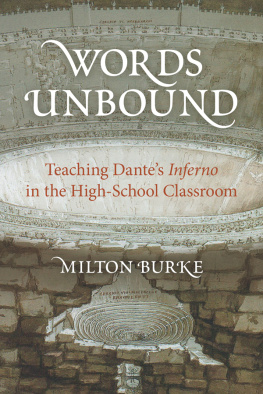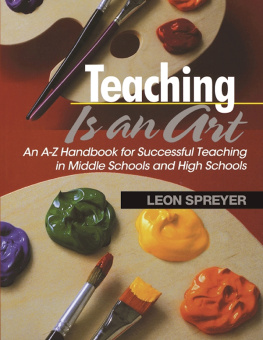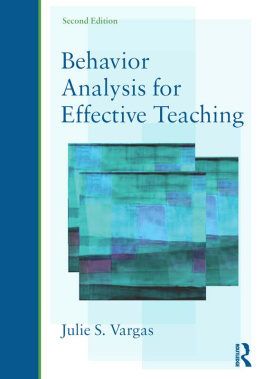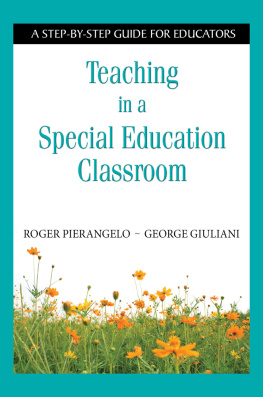FOREWORD
In Words Unbound, Milton Burke, an experienced high-school teacher of Dantes Inferno, offers detailed assistance to those who might wish to teach this text to their students or to those who already teach the text, but might wish some guidance in doing so more effectively. To the best of my knowledge, there is no other book that does this. There are plenty of books on Dante, to be sure, but none specifically written by a high-school teacher for high-school teachers. In fact, the book reads like something of a pedagogical self-help book. The manuscript is divided into sections that track the order of the poem, with a mini-essay in each section offering a brief orientation toward the text and problems a teacher will encounter in it, followed by a series of teaching aids, the kind of material that might appear in a traditional teachers guide, but in an open-ended and generous-minded spirit. This book doesnt close the text down by presenting answers; it opens it up to exploration and discovery in ways that will inevitably vary from classroom to classroom.
Burke, who has taught Inferno for decades, offers straightforward, no-nonsense advice in a voice that is colloquial and occasionally hortatory. He is clearly a master teacher, knowledgeable about his subject matter, but also about what works in the classroom, and by what works, I mean not only what helps students learn Dante, but more importantly what reading Dante can help students learn about themselves and their world. In todays academic environment, what passes for professional development too often involves training in how to administer mandated testing procedures or how to implement the latest legislative initiative or how to accommodate ones syllabus to a prescribed curriculum. This book assumes from the outset that teaching is a noble professiona vocationand it summons teachers to be their best selves and to help their students come to understand what their best selves might be. This means that the book has the potential to provide professional development of the most profound type: something that can, for engaged and willing teachers, transform the way theyconduct their classes. The focus is on Dante, but the takeaway, the approach, can be applied to the teaching of any subject.
Theres no denying that teaching Inferno can seem daunting. The text asks a great deal from teacher and student alike. It is intensely, unrelentingly learned, accompanied by footnotes to historical and cultural references that can make it feel alien to any reader, especially a young one. Let me begin, therefore, by reassuring you if youve never taught Inferno that, although its true that the more often you read this work the more you will see in it, it is surprisingly accessible to committed first-time readers, especially if that reading is undertaken in a spirited and supportive learning community. This book is designed to help you reinforce that kind of community. Students recognize this as a hard text, but they also recognize it as a culturally and personally important one, and they are flattered their teacher thinks them capable of handling a document of such significance. They are not being patronized, not being condescended to, not being coddled. This text is the real deal, a mature text that deserves its place in our cultural pantheon and it has the power to transform its readers like few others. While Ive never taught Dante in high school, I have taught eighteen seminars on Dante for school teachers, and my ongoing interactions with the hundreds of teachers in these programs have provided me an unusual window into what it is like to do so. What these teachers tell me, over and over again, is that teaching Dante is a heady experience, a treat for teacher and student alike, a course that everyone involved anticipates with eagerness and recalls with something akin to reverence.
Before Milton Burke takes you in hand and offers his guidance, Id like to make a couple of introductory points about Inferno, acknowledging as I do so that these are points that he discusses with great subtlety. The first concerns one of the underlying narrative techniques of the entire poem, the differentiation between Dante the pilgrim and Dante the poet, and what this implies about the poems narrative premise. At its most fundamental level, the Comedy traces Dantes physical journey from the dark wood in the first canto of Inferno to his direct vision of God in the final canto of Paradiso, but saying this raises the question of who this Dante is. He is the character who takes the journey, of course, the pilgrim, but also the voice of the narrator, usually called, by way of contrast, the poet, who has, in the fiction of the poem, completed the journey and who, therefore, understands its significance in a way that the often-confused pilgrim frequently does not or cannot. This is the basic premise of any first-person conversion narrative: I was not then who I am now, and this is how the change occurred. The result of this narrative posture is that there is frequently an ironic distance between the reactions of the pilgrim, who may not yet be entirely trustworthy in evaluating and responding to the events and characters he encounters, and the poet, who is more likely to reflect the beliefs of the person who actuallywrote the Inferno. This is a third Dante, but tradition has not conferred a neat and memorable name for him, as with pilgrim and poet. This is Dante the real, flesh-and-blood person who invented both the narrator and the character, as well as the poems invented environments.
This distinction leads to the unusual narrative premise that I mentioned in the previous paragraph. In the succinct formulation of Charles Singleton, perhaps the most important American Dante scholar of the twentieth century, the fiction of the Comedy is that it is not fiction. The poem asks us to believe that Dante pilgrim really took the journey that Dante poet recounts, and even though we know this is an invention, while we are in the grip of the poems narrative, it is easy to forget this. And in a sense, this is as it should be. In The Art of the Novel, Henry James famously asserts the necessity of granting an artist his subject, his idea, what the French call his donne, and in Dantes case that means believing (for literary purposes, not as a matter of religious belief) that Dante is negotiating a realm created by God in which the souls of the dead are assigned to specific areas for eternity, with like souls grouped together, based on the values by which they lived. This means that Inferno presents a moral geography: where the souls are assigned in Dantes world defines who they are. Several of the souls attempt spirited defenses of their innocence, and Dante pilgrim, who is often presented as a moral work in progress, is sometimes moved to sympathy by their words and fate. We need to recall that within the expressed ground rules of the poem, their location within the afterlife, because it claims to express Gods judgment of them, provides a definitive evaluation of their behavior, no matter what they may say to exonerate themselves. The default tone of these self-justifications, in other words, is a species of dramatic irony.












 The paper used in this publication meets the minimum requirements of the American National Standard for Permanence of Paper for Printed Library Materials Z39.48-1984.
The paper used in this publication meets the minimum requirements of the American National Standard for Permanence of Paper for Printed Library Materials Z39.48-1984.